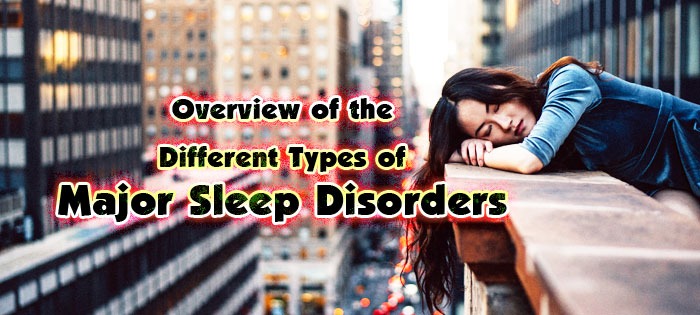Sleep – we all need it. It’s likely that we want more of it, as many of us feel sleep-deprived throughout the week. While we might plan to sleep in on the weekends, and there are many of us who just can’t seem to get enough as easily as we would like.
A Health Epidemic
More than a third of adults today have reported in studies that their sleep is poor or just average enough to get by. Research also predicts that about a quarter of adults don’t wake up with a refreshed mind and body about once a week on average.
Insufficient sleep can be a painful situation for many people, limiting their productivity throughout the day. Not getting enough sleep makes us cranky, results in mood swings, and also makes us vulnerable to several health issues. It’s hence no surprise that insufficient sleep has been declared a national health epidemic by the CDC.
Sometimes, that feeling of fatigue and deprivation is not just due to the lack of sleep or a messed up sleep cycle. The problem might run deeper, being something more like a sleeping disorder. This might be the root of all your problems with getting a proper rest at night. With such issues getting more and more common every day, it’s worth finding out more about what these disorders are and how we may handle them.
There are several major kinds of these disorders, so let’s have a look at them one by one. We may then look at our own sleeping and energy problems and work out if some of the symptoms match.
Insomnia
We have all heard of insomnia, perhaps even claiming to suffer from it. Who hasn’t had an occasional (isolated) bout with the inability to fall asleep? However, the real challenge is what’s known as Acute or Chronic Insomnia Disorder.
This is typically characterized by problems with getting to sleep or staying asleep for at least a few nights a week. Such a state can continue on for months or indefinitely. In order to be officially diagnosed with insomnia, which is a chronic sleep disorder, you have to be facing sleepless nights for about three months. Even with this stringent limit, it’s estimated that about a third of all Americans suffer from insomnia in some way.
The causes of insomnia can be almost anything from a secondary response to another ailment of some kind. Things like stress, medications, unusual required sleep schedules, and other factors can all be triggers for insomnia. There are even extreme cases of insomnia where people haven’t slept for years.
Sleep Related Breathing Disorders
When we think of sleeping and breathing issues, the most common diagnosis is Sleep Apnea. With Sleep Apnea, the normal breathing cycle is broken up by long pauses that can range from a few seconds to a few minutes. Obviously, this is quite a dangerous and disturbing disorder that can jerk you awake even in the middle of deep sleep.
There are two types of sleep apnea, which are obstructive sleep apnea (OSA) and central sleep apnea (CSA). One can also suffer from a combination of both. OSA is the result of something causing a blockage of the air flow. Common factors for OSA include being overweight, allergies, having small airways, etc. CSA, on the other hand, is simply a result of the body not making the effort to breathe consistently while sleeping.
There are also sleep-related hypoventilation and sleep-related hypoxemia disorders. These primarily have to do any physical impact that causes lower oxygen levels and higher carbon dioxide levels. Causes may include pulmonary related diseases, neurological issues, neuromuscular issues, and any type of abnormality that impacts the normal course of breathing during sleep.
Central Disorders for Hypersomnolence
These disorders are primarily characterized by severe problems with staying awake during the day despite relatively normal night time sleep. Perhaps the most common and well-known example is Narcolepsy, which can at its most severe cause people to instantly fall asleep.
Another very rare example is what is known as Sleeping Beauty Syndrome (Kleine-Levin syndrome), where a person will sleep for excessive periods of time. These phases can range from a week up to a month and even longer in some very rare situations. Other causes can stem from psychiatric disorders, medications or some other types of medical disorders.
Circadian Rhythm Sleep-Wake Disorders
The Circadian rhythm is the normal 24-hour cycle that our bodies follow to regulate being awake and asleep. These sleep disorders are characterized by a disruption of the normal circadian rhythm. This disruption could range from something like jet lag or working late shifts to major trauma or anything else that causes irregular sleeping patterns.
Narcolepsy
This sleep disorder comes from certain brain abnormalities that could disturb our REM sleep. REM sleep is the kind we need to actually feel refreshed, rejuvenated, and heal several minor or major health issues. Without this in our night’s rest, we don’t stand to get much refreshment no matter how long we stay in bed.
Narcolepsy is a condition that causes people to fall asleep at any time, leading the rest of the day in a sort of limbo. Some patents of this condition might even find it a challenge to stay awake through a concert or an exciting trip. Some of the sleeping or faint-like episode might be triggered through some sort of emotional stress, brought on by a certain song, sound, etc. This additional condition is called cataplexy.
Sleepwalking
This is also a condition that many people know about. The major symptom, of course, is walking wile sleeping. In some cases, the patient might have difficulty waking up and could perform certain actions in their sleep.
Surprisingly, this disorder is mostly found in children. No one’s sure why this happens, but it might have something to do with the vulnerability of a developing brain. Reducing the number of liquids one drinks near bedtime and having a proper sleep schedule is held to be among the most effective treatments here.
Parasomnias
These sleep disorders are related to unwanted physical movements during sleep. These movements may not necessarily wake up the person but will alter their normal non-REM and REM sleep patterns. A few of the more common examples include:
- Sleep Walking
- Extensive and Recurring Nightmares
- Restless Leg Syndrome
- Sleep Terrors
- Sleep Paralysis – This occurs when the person is aware of what’s going on but can’t move.
- Exploding Head Syndrome – The person experiences hearing loud imagined sounds like a bomb exploding, gunshots, etc. when falling asleep or waking up
- Sleep Talking
- Cramps – Regular painful cramping
- Bruxism – Excessive teeth grinding
These movements can be caused for various reasons, including medication side effects or other illnesses that impact sleep. Stress and everyday tension could also be part of the problem. As we can see, there’s no doubt that getting a good night’s sleep is not that easy for everyone.
Reading Up on Managing Disorders
If you or a loved one is having issues with sleeping, there are several works that might be of help in diagnosing and dealing with the situation. Consider starting off with “The Sleep Solution: Why Your Sleep is Broken and How to Fix It” which is a paperback version.
This is a great work that can get you introduced to the cutting-edge research within sleep science. You can also start learning about tried and tested sleeping techniques that might even help you solve your issue at home.
With any luck, you can start sleeping in a healthy manner and do away with sleeping pills based on what you read here. If anyone is suffering from sleep-related fatigue and/or pain, this book could be the lifesaver they need.
With cutting-edge sleep science and time-tested techniques, The Sleep Solution will help anyone achieve healthy sleep and eliminate pills, pain, and fatigue. Don’t make the mistake of thinking that this book is just filled with tips or tricks, though. It’ll help you understand the source of your sleeping problems and learn how to conquer them.
“The Sleep Solution” Is written by W. Chris Winter, who is a sleep expert and neurologist with an impressive 24 years of experience under his belt. With his expertise and knowledge, we can helpfully learn how to manage our sleep in the best way possible.
Conclusion
Remember, if the fatigue or the issues with sleeping are affecting your everyday life for the worse, it’s probably time to see a doctor. Many of the disorders above are manageable and even treatable, though you might have to take medication at some point. However, there are several natural healing practices as well, so we’ll recommend trying these out before the medication route.


